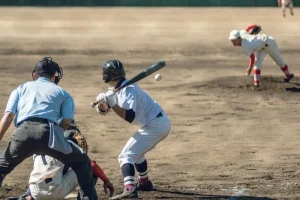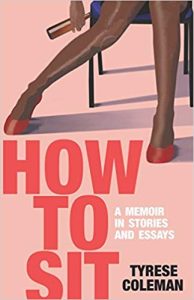Last week a grand jury declined to press charges against a former McKinney, Texas police officer who threw a teenage girl to the ground during a pool party raid last June. The family of Dajerria Becton, who is black, is pursuing a civil case against Eric Casebolt, the white officer who resigned shortly after a video of the pool party went viral last summer. In case you’ve forgotten, here it is:
As a mother, I found the images disturbing and haunting. I wrote an essay about it last year for The Manifest-Station that I forgot to share here on my site at the time. Here it is, if you’re interested.
A White Mom, Living #BlackLivesMatter
The day after 15-year-old Dajerria Becton was thrown to the ground by a McKinney, Texas, police officer during a teen pool party gone wrong, my 12-year-old daughter joined her friends for an afternoon at Mount Baker Beach on Lake Washington in Seattle. I wasn’t happy about her plans. She’d just had her hair freshly braided, and a lake swim would hasten the style’s unraveling, but the day was hot and childhood should be about joy and untidiness, so I let her go. She wore her new bikini for the first time, navy blue and pink, with a hot pink sundress on top, all gifts she’d just received for her birthday.
My son, age 13, also went down to the lake that Saturday with a group of boys. Another mom dropped them off, and I heard about the outing only after they’d left, when she texted me an update. Meanwhile, my 14-year-old daughter took off with her girlfriends for a matinee. I felt a little nervous about my kids scattering in three directions, but as we move into the teenage years, I know I have to allow them to test the limits of their independence. They are good kids, and I trust them, but I worry, all the time.
I am a mother by adoption. I am white and so is my husband. We knew when we chose to adopt outside our race that our children would face hurdles that we’d never encountered, but the recent tragedies that have birthed the #BlackLivesMatter movement have shown me that, despite our good intentions, we didn’t fully grasp the magnitude of our parenting responsibility when we started this family. Intellectually, I recognized that we’d need to have “the talk” with the kids someday to help them learn how to stay safe while black, especially in encounters with police, but my initial attempts to broach the topic, made when the kids were about 7 and 8, felt clumsy and vague compared to the talk a black acquaintance of mine offered his 7-year-old son: “In the eyes of society, you aren’t cute anymore.”
I wanted my kids to stay cute forever. The year my son turned 10, I was forced to admit those charmed days were gone. A white day camp counselor, unhappy with my son for speaking out of turn during a game, ordered him to do 50 push ups as punishment. When he faltered and dropped a knee, she forced him to start over again. My younger daughter, then 9, saw the white’s of her brother’s eyes turning red from the strain and shouted that he was in pain and needed to stop, so the camp counselor — who just happened to be an off-duty cop, moonlighting for a little extra cash — forced my little girl to drop and give 50 too. Meanwhile my oldest, age 11, stood by, terrified and unable to speak up for her siblings, a shame that still gives her nightmares. A couple of months after that, a fifth grade classmate called my son a nigger. A little boy called my daughter “blackie.” Next came the death of Trayvon Martin, a boy just seven years older than my son. That was the year that my understanding of “the talk” moved from intellectual to visceral.
Today my kids are young teenagers. The simmering anxiety I experience each time I let them out of my sight me boils over in the McKinney videotape. A slender girl, dressed only in an orange and yellow swimsuit, cries for her mother as the police officer twists her arm, pulls her braids, and shoves her head down hard toward the concrete sidewalk. Her girlfriends and a couple of boys react with alarm to the violent way the cop touches her. The scene is chaotic and in their fear and confusion, the boys approach the police officer from behind, surprising him. In his rage and hysteria, the officer draws his gun. That no one is shot dead outside the Craig Ranch Community Pool seems like a miracle.
My children know they have to be careful. After the deaths of Michael Brown, Eric Garner, Tamir Rice, Walter Scott, and Freddie Gray, after the outrage in McKinney, after the heartbreaking slaughter of nine innocents in Charleston, after the burning of six black churches in seven days and still more fires burning, after the death of Sandra Bland, after the experience of racism in their everyday lives, they know. And yet they are kids. Likely to make mistakes. Likely to be misjudged.
As soon as I saw the McKinney tape, I knew how the public conversation would play out. Sorrow, outrage, and calls for justice from some, denial, blame and racism from others, conspicuous silence from most. By now the news cycle has moved on and on, each new incident more terrifying than the next, but the image of a grown man digging his knees into the small of a young girl’s back is the one that haunts me. That is my baby. My daughter, face down in the grass, calling for me, and I am not there. And that is my son, fleeing in terror from the officer’s pointed pistol. Every single time my kids arrive home safely from the lake or the movies, each time they return from a trip to the ice cream shop or stroll to the corner store, I remember. I cling to those hours when all three of my children are at home, asleep in their beds, the only hours when I can rest and pretend, just for a little while, that they are safe.



